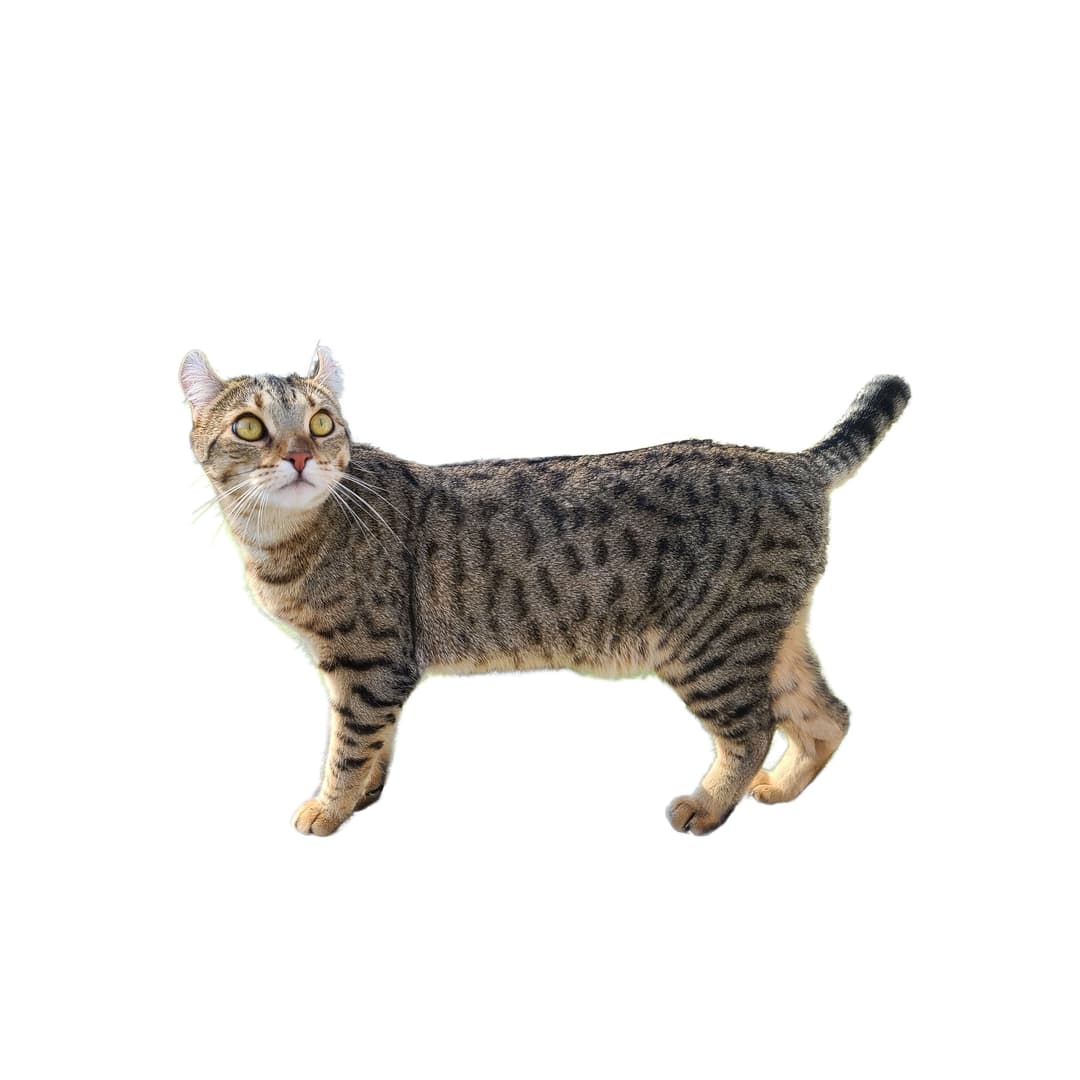Discover your cat's connection to this breed and 20 others


Discover your cat's connection to this breed and 20 others



The Highlander cat, originally called the Highland Lynx, is a young breed dating back to the early 1990s. While wild-looking, this kitty does not have any wild cat blood. The cats of this beautiful breed are recognizable by their signature curled ears and short expressive tails. These wild-looking kitties are highly intelligent, extremely affectionate, and known to make wonderful additions to both family and single person households.
The Highlander cat is a newer, somewhat rare cat breed. Their signature curled ears and short tails frame either end of their medium-to-large muscular frames. They have ears that are loosely curled atop their wide head with a long, sloping forehead that leads toward their oval-shaped eyes that appear slightly flattened. Their muzzles have a boxy appearance, which include a wide nose and strong chin. Some Highlander cats have tufted ears, making them all the more intriguing to behold. Their short, expressive tails are often kinked or curled in shape.
The Highlander cat breed began in the U.S. in the early 1990s. Breeder Joe Childers wanted to create a domestic cat breed that resembled a wild cat. He first crossed a desert lynx and a jungle curl cat, and the breed continues to evolve by crossing with a mix of domestic cat breeds.
The Highlander cat makes a versatile companion for anyone who wants to be showered with love and affection. They are known for their people- and pet-oriented personalities and they do appreciate a lot of attention from their humans, so don't leave them alone for long periods of time. Highlanders have a lot of energy, an important fact to know before adopting one of these lovely kitties. They enjoy climbing to new heights and love play of all types, including lots of engagement with interactive toys as well as games of fetch.
The Highlander cat is a generally healthy breed with no inherited genetic conditions known to be tightly associated. Weekly grooming is important, especially the underbellies of the longhaired version of the breed to prevent matting. As with all cat breeds, oral health is very important, so it's important to establish both at-home brushing routines in addition to taking them to your veterinarian for regular wellness exams and professional dental cleanings.
The Highlander cat has yet to be recognized by any registry. These striking kitties are waiting their turn to be recognized by any registries, such as those with the Cat Fanciers' Association (CFA) or The International Cat Association (TICA). However, TICA did accept the Highlander as a Preliminary New Breed in 2008, and also has a list of breeders on their website. Highlander cats can also be exhibited at TICA shows.
The Spruce Pets: Highlander: Cat Breed Profile, Characteristics & Care
Recommended by top vets with decades of experience
21 breeds
64 genetic health markers
50 genetic trait markers
